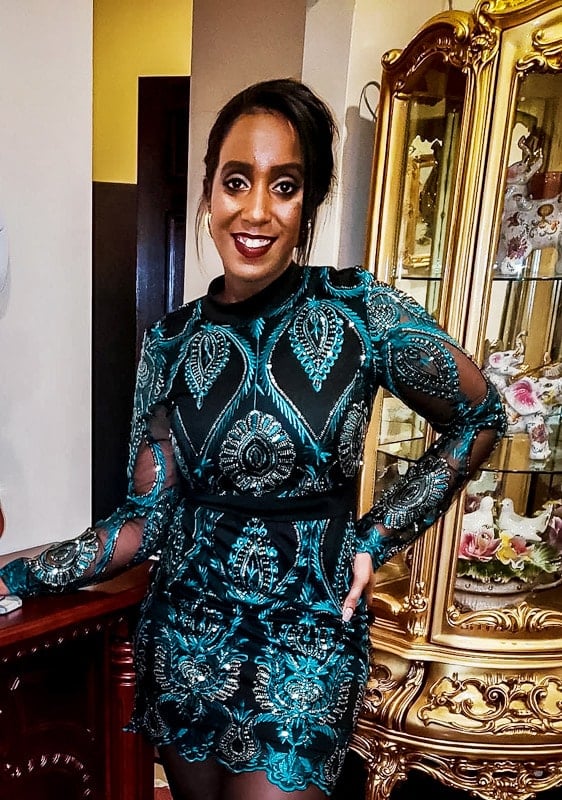
When I first opened up my small business four years ago, I didn’t know what to expect. Deep down inside, I was hesitant, but I was very excited. I didn’t know the things I know now about the beauty industry. All I knew back then was just to create cosmetics and worry about everything else later. Despite purchasing ingredients at wholesale or in bulk prices, my business became challenging to maintain. So from 2016 until early 2020, my business went into hibernation.
When I reopened Belleamor Cosmetics earlier this year, it felt as if the entire beauty industry has shifted. There were so many new trends that I felt like I had been gone for a decade. In 2016, you could post pictures, use a few hashtags, and get your business discovered relatively easily. However, those same rules no longer apply. It has become so difficult to get discovered, to be seen.

This shift that had happened made me feel hesitant and scared to stay open. And although I have come across amazing individuals, I also came across individuals who felt that I didn’t have what it took to survive as a business They were unhappy to discover the person behind the brand was actually black. It made me feel as though the makeup industry wasn’t as accepting of women of color as they are with others who are not of color.
Second-Guessing Myself

Because I’m a small business, I reach out to multiple makeup artists to test my products. Many would leave my emails unread. But I’ve also noticed that similar small business owners who are not black-owned, would get a response from that same makeup artist without hesitation. It’s unfair. And it made me start second-guessing every move I made. From the photos I upload, to the makeup artists I reach out to. I tried to make my page as neutral as possible until I grew tired and became more vocal.
I’m an Afro-Latina. An Afro Latina or Afro-Latinx refers to descendants of Latin America with African ancestral roots.
The Challenges of Being a Black-Owned Small Business
Being a black-owned small business means that I am the owner, the accountant, and customer service all in one. It’s challenging. I have to keep my customers happy while maintaining and growing diverse relationships with others who are not black. It’s also difficult in the sense of campaigning for support in general, as people would rather support big reputable brands than smaller businesses.
The financial struggles that come with being a black-owned business are also problematic. Our approval rates for small business loans are relatively less compared to white-owned companies. We are faced with mistreatment when applying for small business loans, even if we have the same credit history as a white-owned business. I’ve tried applying for years, and I still get denied while being a registered business.

The Perception of Pricing
I frequently come across individuals requesting discounts. Many have stated my prices are too high, so they’d rather take their business elsewhere because there’s no guarantee my products are better than the big companies out there. I always try to provide discounts and incentives to my customers in any way that I can. But to others, it’s not a big enough discount – they actually want it for free. It’s frustrating and so heartbreaking.
If only that person asking for a discount knew how hard it is to maintain my business while I do everything by hand and purchase all of my equipment and ingredients out of pocket. If that person knew this, I feel that they would agree my prices are too low.

Walking on Eggshells
As a black small business owner, I have to maintain a high level of professionalism and provide the best customer service I possibly can – as the price I face being black, comes with so much scrutiny. I feel like I’m walking on eggshells. If I don’t do something right or meet the expectations of my customers/potential customers, it makes me feel as if I failed as a business. So it turns into a vicious cycle of seeking acceptance and support from a community that sees you as a knock-off to the big brands out there.
I don’t want to give up. In my own words, I just want to be understood, supported, and respected.
Catherine was born and raised in New York City. She is a Brooklyn Native and now resides in Queens. She completed her undergrad at John Jay College of Criminal Justice with a major in Criminal Justice with a concentration of the courts. But she has always had a love for crafts and creating. Catherine is currently enrolled at Fashion Institute of Technology’s Beauty Industry Essential Program where she takes lessons about the beauty and cosmetics industry. Catherine started Belleamor Cosmetics back in the year 2015. Her products focus on cruelty-free and vegan beauty that showcase bold, rich and extremely pigmented colors at an affordable price. She creates cosmetics that are suitable for everyone without limitations. Catherine’s biggest inspirations in the beauty industry are Pat McGrath and Rihanna. She hopes to take her brand further to reach other makeup lovers worldwide.
- Catherine DeJesushttps://www.womensbusinessdaily.com/author/catherine-dejesus/






